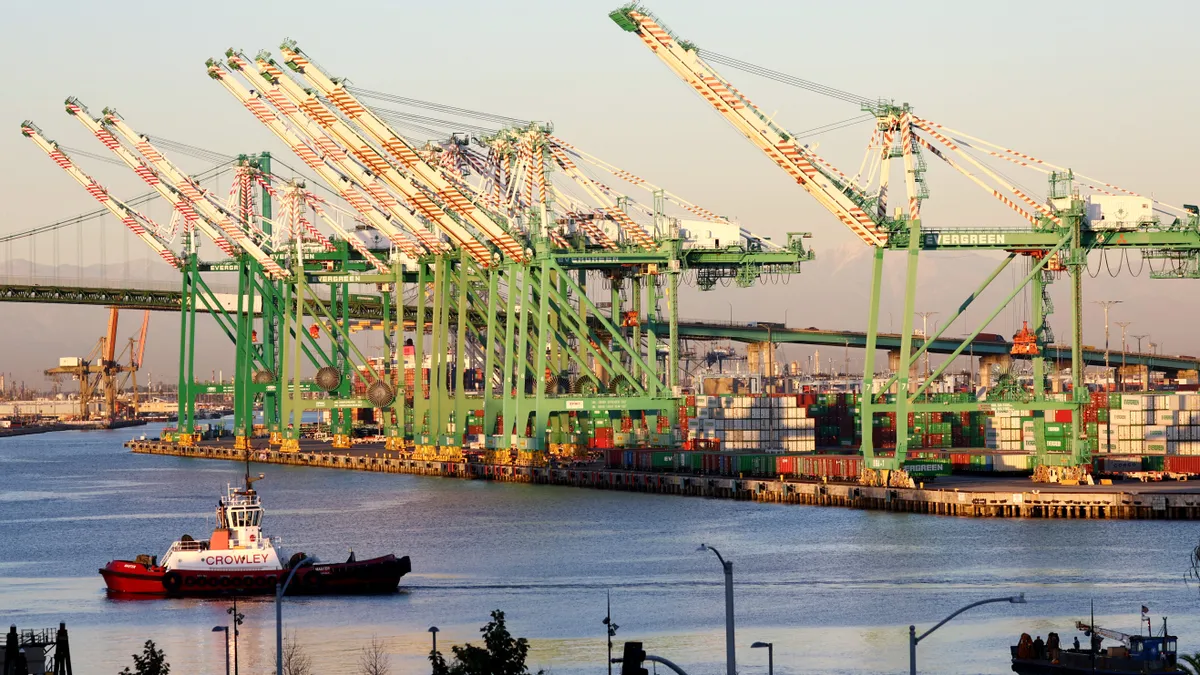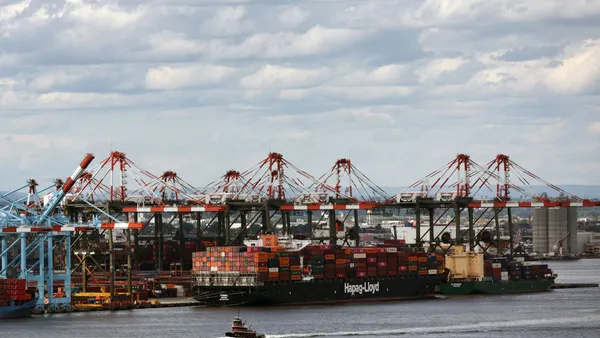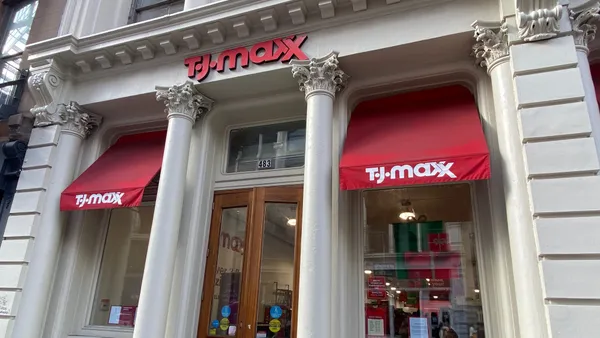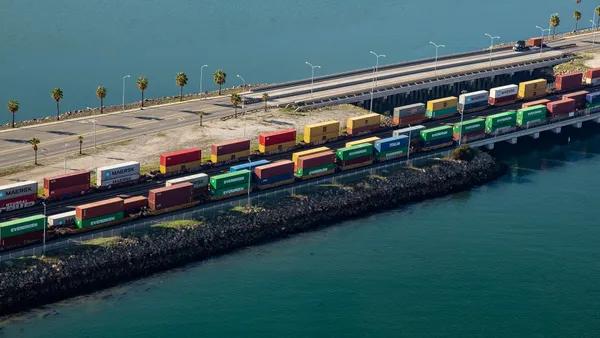Dive Brief:
- The U.S. Chamber of Commerce sent a letter to President Joe Biden on Friday, urging him to "intervene immediately and appoint an independent mediator" that could help resolve labor negotiations at West Coast ports.
- In the letter, Chamber of Commerce President and CEO Suzanne Clark said the business organization is concerned about recent disruptions at West Coast ports, and the impact a prolonged dispute could have on the U.S. economy as peak shipping season approaches.
- A federal mediator was last used during the port labor negotiations that took place in 2002. At the time, there was an 11-day West Coast port shutdown that cost the U.S. economy about $10 billion, the business group said.
Dive Insight:
Business groups including the Chamber of Commerce are increasingly raising fears that port disruptions could significantly affect the economy.
Several shipper groups have called on the president to intervene in negotiations, citing fears of delays or renewed congestion during a critical shipping season. The National Association of Manufacturers, for example, pointed to research showing a 15-day disruption could cost the economy half a billion dollars daily.
The International Longshore and Warehouse Union and Pacific Maritime Association began contract talks in May 2022, before the contract covering thousands of dockworkers at 29 West Coast ports expired in July 2022. Over the past few weeks, the number and scale of disruptions related to the talks has accelerated, affecting the California ports of Los Angeles, Long Beach and Oakland, as well as the Washington ports of Seattle and Tacoma.
“Unfortunately, strikes and lockouts related to ILWU-PMA negotiations are not without precedent,” John Drake, vice president of transportation, infrastructure, and supply chain policy at the U.S. Chamber of Commerce said in a statement. “Every negotiation over the last 20 years has seen at least a short-term service disruption, however any service disruption has negative consequences, ultimately snarling supply chains and hurting businesses.”
Given that context, many shippers have been diverting cargo away from risky West Coast ports, and towards East and Gulf Coast ports.
"Combined container imports at the neighboring ports [of Los Angeles and Long Beach] dropped 38% last month from a year earlier, to their lowest level since March 2020," Clark said in the letter to President Biden."As labor talks continue to stall, there is a growing realization that these shift diversions could become permanent, doing lasting damage to the local economies around these ports.”















